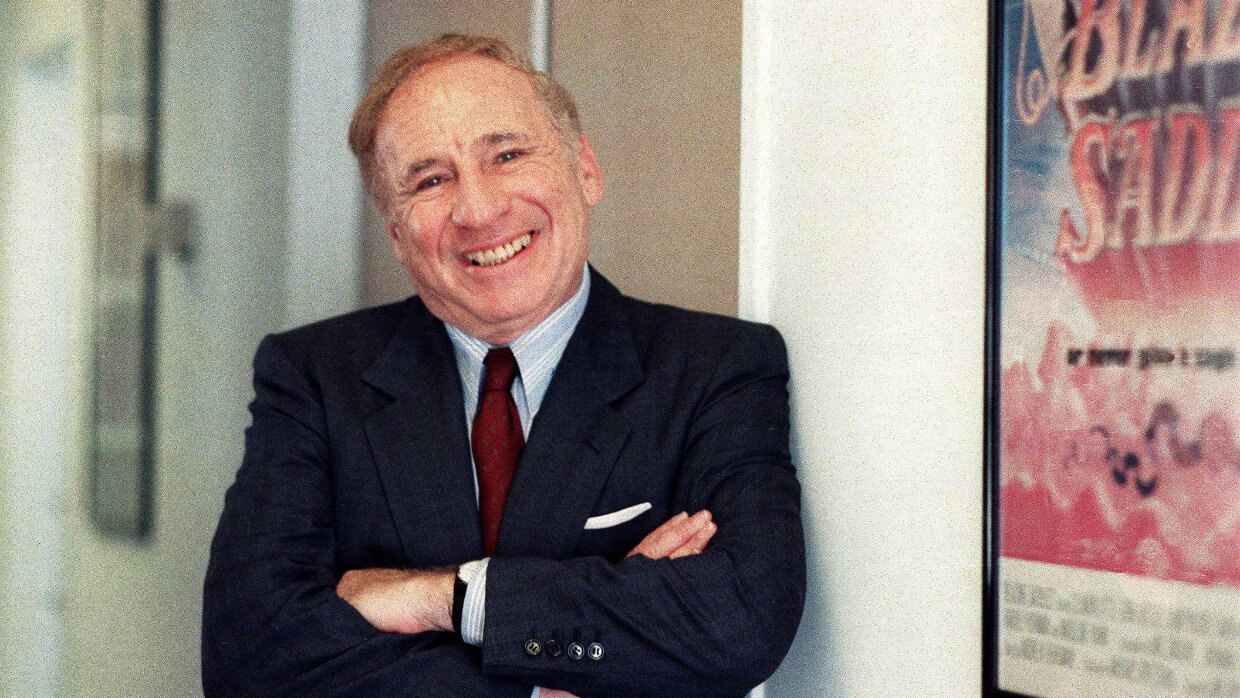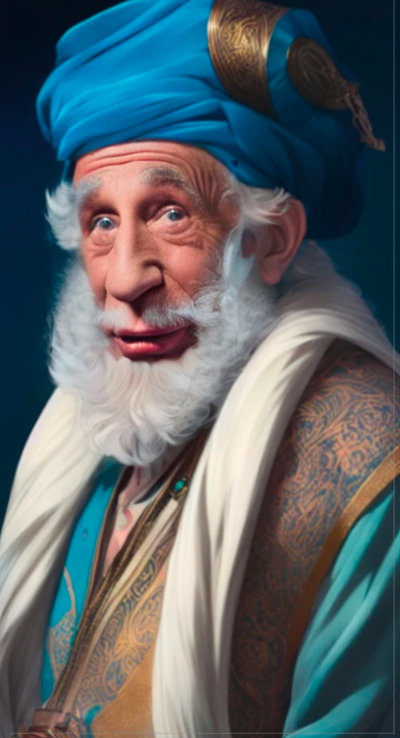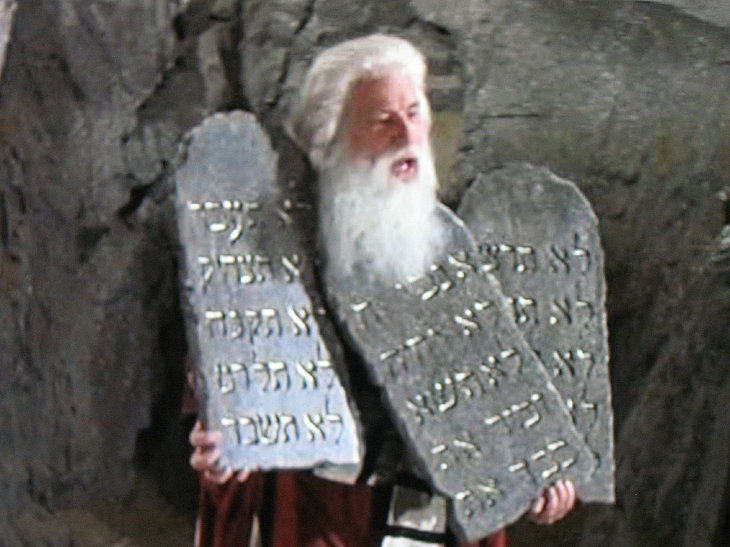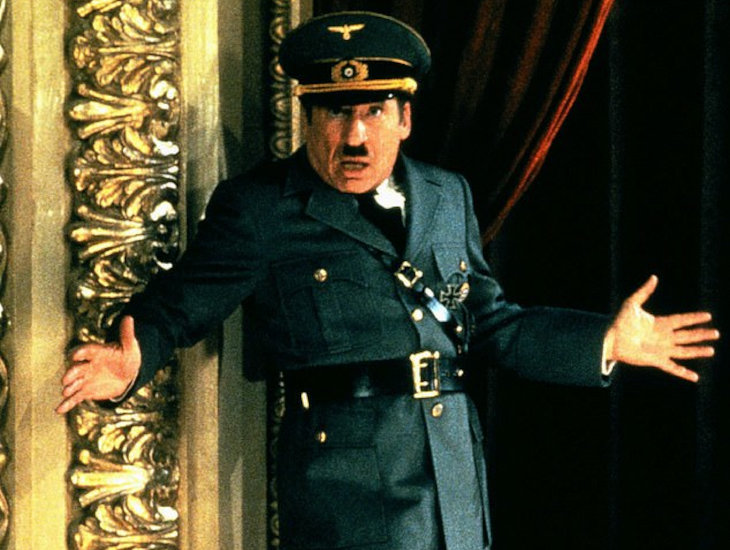 Vampire Weekend's Surprising Jewish Stories
Vampire Weekend's Surprising Jewish Stories


5 min read
The comic genius left his imprint on generations of comedians. At 96, he can be forgiven for failing to meet his standard with History of the World, Part 2.
Mel Brooks is one of the greatest comic geniuses of all time. And no matter what show or movie he’s involved in, you’re going to run into a Jewish joke.
Sometimes it’s just a Jewish phrase to punctuate a moment (Spaceballs: “Funny she doesn’t look Druish”).
Sometimes it’s an anachronistic character swap such as making Friar Tuck into Rabbi Tuck the mohel in Robin Hood: Men In Tights.
But then there are the Jewish jokes that elevate the comedic landscape, like the musical number Springtime for Hitler did in The Producers.
His 1981 film The History of the World, Part 1 reached all three of these levels. Now, more than 40 years later, with Brooks at the age of 96, we’re finally getting a History of the World, Part 2. Do any of the jokes of this 8-episode TV season ever reach that transcendence worthy of being recorded in the comedy history books?
 Mel Brooks as Mordechai. Artwork by Yariv Newman
Mel Brooks as Mordechai. Artwork by Yariv Newman
The History of the World, Part 1 is filled with low-brow humor, silly puns, and tons of sight gags. But when it lampoons Hitler, the Spanish Inquisition, Julius Caesar, and King Louis XVI, it knocks these figures down in a way that’s not only hilarious, it does more damage than any rant could. In an interview with Bill Newcott, Brooks was made aware of a criticism regarding his film The Producers. “How can Mr. Brooks have written that comedy? Because it’s about Hitler and there’s nothing funny about Hitler.”
To this Mel Brooks responded:
I didn’t know what to do with my frustration, with my anger… at not being able to do anything about this phenomenon of rounding up my people like cattle and being decimated… I was always looking for some payback. Some answer. And I knew that if I was serious about it, I’d be drenched in the same kind of feelings… it would get lost in the river of woe. I realized you can’t get on a soapbox and match these guys, their fervor and their talent for oratory. But my edge is to deflate them. Take all the air out of them. And ridicule them with humor.
Sometimes the pen is mightier than the sword. Brooks wasn’t the first comedian to parody a historical figure; he’s not even the first to satirize Hitler (just look at Charlie Chaplin’s The Great Dictator). But there’s no question he did it with a style and substance that spoke to our generation. Brooks’ approach has been internalized by the comedians of today. To see this, look no further than Taika Waititi's flamboyant portrayal of Hitler in Jojo Rabbit or the satirical news entity, The Daily Show.
 Brooks as Moses, in History of the World, Part 1
Brooks as Moses, in History of the World, Part 1
Unfortunately, this level of humor is few and far between in The History of the World, Part 2. But it’s there, albeit in a different form. Obviously, the evils that are being lampooned are different than 40 years ago. Yes, we get a sketch that picks up where “Hitler on Ice” leaves off. Stalin, Lenin, Rasputin, Nixon, and Kublai Khan are all ridiculed. But where History of the World, Part 2 seems to make its boldest satire of evil are in two sketches. One involves William Shakespeare and the other is at the Council of Nicaea.
In the Shakespeare sketch, we are taken into a view of Shakespeare's writers’ room (poking fun at the conspiracy theory that Shakespeare didn't write his own material). William Shakespeare is portrayed as a narcissistic control freak who takes credit for his writers’ best ideas.
In the Council of Nicaea sketch, a Roman forum dominated by white male decides to rebrand Jesus as a white male action hero (in the show’s other sketches, Jesus is black), who was oppressed by the Jews, not the Romans. The tyranny that needs to be deflated aren’t the historical figures themselves, but the social ills of today, i.e. lack of representation, mansplaining, gaslighting, and cultural appropriation. At times, both of these sketches are rather funny, but I can’t help but wonder how History of the World, Part 2 could have made bolder and riskier choices.
 Mel Brooks as Dr Frederick Bronski in the 1983 film To Be or Not To Be
Mel Brooks as Dr Frederick Bronski in the 1983 film To Be or Not To Be
In 2014, Sony pictures was the victim of a vicious computer hacking, believed to be retaliation for Randall Park’s portrayal of the North Korean dictator Kim Jong-un in The Interview. In 2015 the French satirical newspaper Charlie Hebdo was attacked by al-Qaeda terrorists due to their controversial ridicule of French policy and violent Islamic jihad. And in 2019, South Park brazenly made fun of China’s President Xi Jinping, in the midst of entertainment leaders bending over backwards to please the lucrative foreign market. These were all bold choices made by taking real – even life-threatening – risks to stand up to power.
In The History of the World, Part 2, there’s no shortage of Jewish jokes, clever anachronisms, and even a very funny Oslo Accords sketch where the countries argue over who invented hummus. But the bold, influential lampooning comedy has been left to other comedians. Perhaps at the age of 96, surrounded by a writers’ room of comedians who want to be a part of history instead of making it, Mel Brooks is content to let this series be just that… history.
